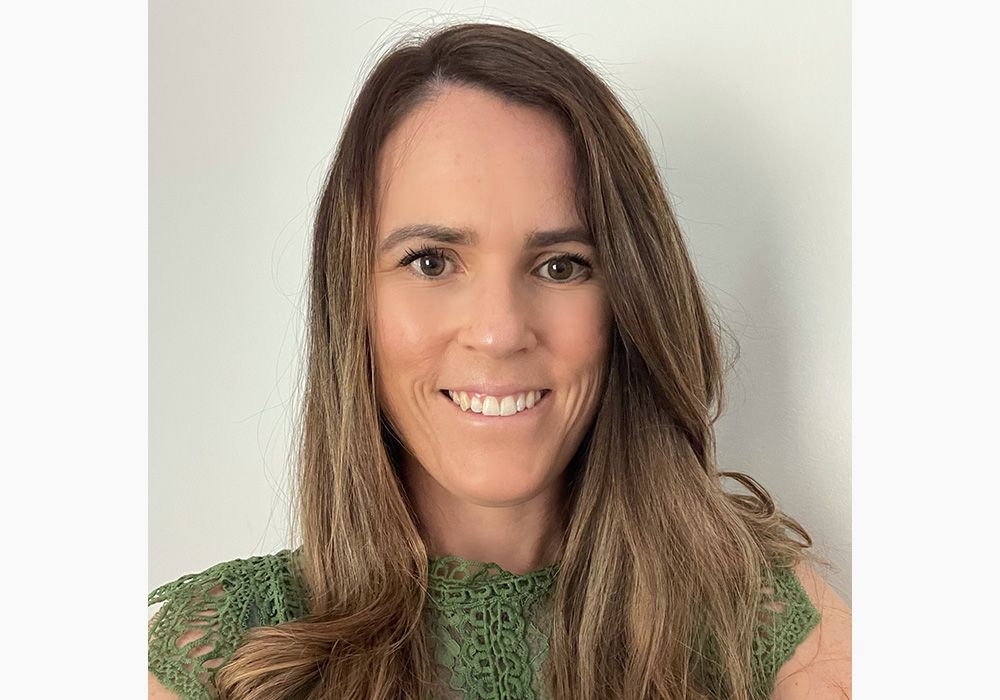Alana Kelly
Author | Luisa Mitchell
The Abilities Collective @ Curtin is a group of Curtin University staff members with disabilities and allies who want to see positive change for people with disabilities studying and working at Curtin.
Alana Kelly was diagnosed with ADHD only recently, and through this discovery decided to form the Abilities Collective. Here’s what she had to say on the future of this exciting new group and her own journey with ADHD.
Note: This is part of a series on stories of disability at Curtin. Stay tuned to hear from more Abilities Collective members!
Hi Alana. Tell us a bit about yourself – what do you do at Curtin?
I started working at Curtin in March for the Centre of Clinical Research and Education in the School of Population Health, providing administrative support to John Curtin Distinguished Professor Chris Reid and the wider team. Chris is a cardiovascular epidemiologist and clinical trialist.
I love the team I work with and it’s fantastic to be part of such an incredibly important organisation; there are so many opportunities to grow and learn.
I didn’t have much experience in health sciences, so working here has been a steep learning curve. It was soon after I started working here that I was diagnosed with attention deficit hyperactivity disorder (ADHD). Somehow, I had gone 39 years without realising that this was what I had been struggling with my whole life.
What’s something most people wouldn’t know about your experience with ADHD?
Looking at me, you would have no way of knowing that I have ADHD. In adults, it doesn’t look like what you may think. For starters, a majority of us internalise our hyperactivity. Being faced with negative feedback from a young age, we learn how to mask symptoms so we can fit in with societal expectations. But this feels uncomfortable to do and takes a huge personal toll.
I have chosen to be very public with my diagnosis because there is so much misinformation around ADHD. For example, there is an incorrect assumption that people with ADHD don’t do well in school or work, when in fact, many people with ADHD are very high achievers with high IQs, particularly women.
By being open with my own diagnosis I hope to reduce stigma around ADHD and promote education. My main goal is to create so much awareness that other women won’t suffer as long as I did. I also have a special interest in bridging the gap between children with ADHD and their parents.
What does life look like with ADHD?
Before I was diagnosed I suffered with what I thought was constant crippling anxiety. My body was always tense and my mind never switched off, even when I was sleeping. I was very highly strung and prone to feeling angry and out of control almost all of the time. I couldn’t relax and I was disorganised and always late. I was very hard on myself but was also incredibly capable, achieving high success in everything I did, in school and throughout my career. I couldn’t make the connection between the two until I realised it was ADHD.
Thankfully since getting the right medications, my life has dramatically improved. The interesting thing about ADHD medication is that it isn’t a ‘cure’, but it calms the inner storm. I’m so much happier, and as a result I’m a better partner, friend, employee and parent. But most of all, I’m able to be kinder to myself and have climbed out of the shame spiral that I was in.
I’m still late, and can be forgetful and inattentive at times but I don’t beat myself up about it anymore. I am as valuable a person and employee as anyone else – I just do things a little differently, and that’s okay.
You started the Abilities Collective @ Curtin. What is it and why did you create it?
After being diagnosed with ADHD I visited the Curtin website to find an employee support network for people with disabilities to join – but I couldn’t find one! Despite the many fantastic things in place for employees living with a disability, there wasn’t any program run for employees, by employees. I reached out to Erica Schurmann, who incidentally had been waiting for a staff member living with a disability to approach her with this idea, and off we went. We quickly had 40 members and our first meeting was a great success.
At first, I just had a vague idea that myself and any other interested people could get together every few months to hang out. But now I have seen how much more of an impact we can have, especially with the next Disability Access and Inclusion Plan (DAIP) coming up for review at Curtin.
What has been your experience working at Curtin and what do you hope the new DAIP will include?
I’ve had a very positive response from my managers and co-workers after sharing my ADHD diagnosis. At first I was worried I might be judged, but then I realised that I don’t mind if people judge me – that’s a reflection on them, not me.
I would like employees who are living with a disability to have a huge input in the DAIP, as they are the ones the plan directly affects. I would also like to see the iPerform module ‘disability_AWAREness’ be made mandatory training for all staff.
For Curtin to create a culture where disability isn’t seen as something negative, we need to start at ground level. The iPerform staff training is a great launching point for people to begin educating themselves on the many facets of disability, as well as important topics such as discrimination, accessibility, workplace adjustments and much more. The more people that take in this information, the better; education and challenging stigmas are key.
The Abilities Collective takes a strength-based approach to what makes one abled, rather than disabled. How do you stay focussed on the positives in life?
That’s easy – I have a fantastic life. There are lots of challenges but I also have an amazing, unique and endlessly creative brain. I like to always have something to look forward to, and I also make sure to stop and pay attention to what is happening in the present moment.
Any final tips for non-disabled people who want to be an ally?
If you work at Curtin, then please complete the iPerform module “disability_AWAREness.”
Don’t be afraid to ask questions.
Speak up if you see people being discriminatory against people living with a disability.
Author | Luisa Mitchell
___



